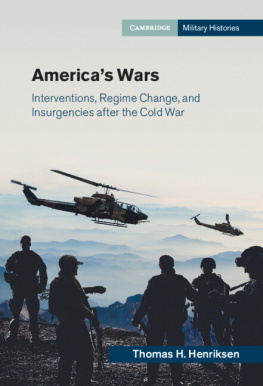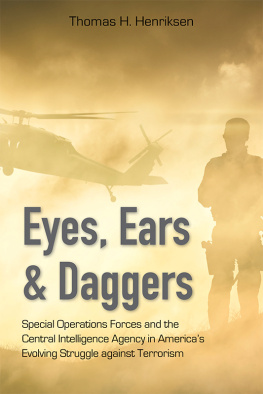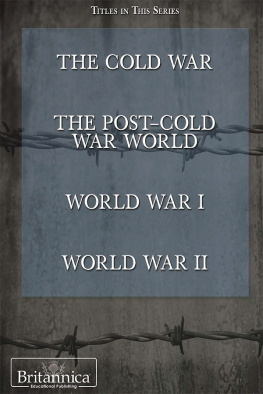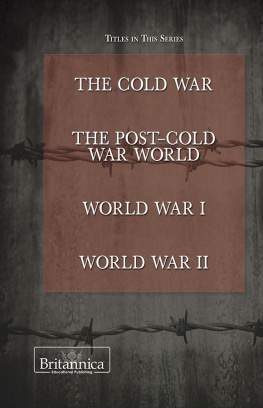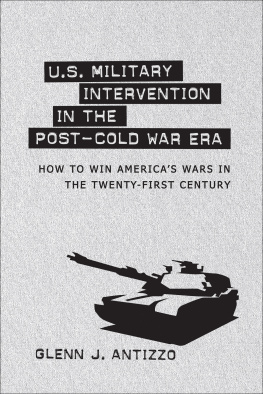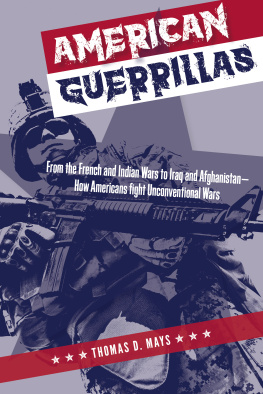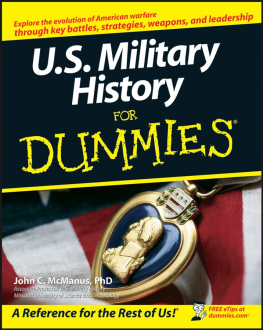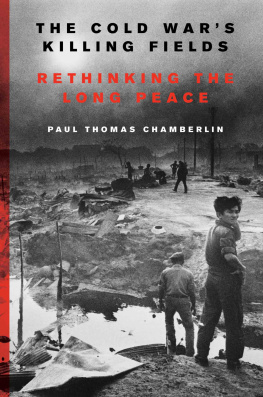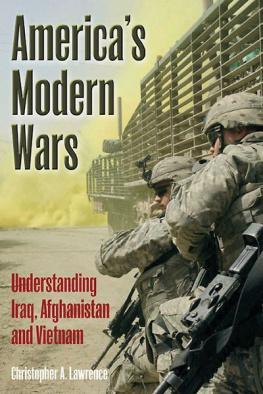Americas Wars
The collapse of the Soviet Union ushered in American global hegemony in world affairs. In the postCold War period, both Democrat and Republican governments intervened, fought insurgencies, and changed regimes. In Americas Wars , Thomas Henriksen explores how America tried to remake the world by militarily invading a host of nations beset with civil wars, ethnic cleansing, brutal dictators, and devastating humanitarian conditions. The immediate postCold War years saw the United States carrying out interventions in the name of Western-style democracy, humanitarianism, and liberal internationalism in Panama, Somalia, Haiti, Bosnia, and Kosovo. Later, the 9/11 terrorist attacks led America into larger-scale military incursions to defend itself from further assaults by al Qaeda in Afghanistan and from perceived nuclear arms in Iraq, while fighting small-footprint conflicts in Africa, Asia, and Arabia. This era is coming to an end with the resurgence of great power rivalry and rising threats from China and Russia.
Thomas H. Henriksen is Senior Fellow Emeritus at Stanford Universitys Hoover Institution. His previous publications include Cycles in U.S. Foreign Policy since the Cold War (2018), America and the Rogue States (2012), and What Really Happened in Northern Irelands Counterinsurgency (2008). Between 19631965, he was a US Army infantry officer and served on the Presidents Commission for White House Fellows, and US Army Science Board.
Cambridge Military Histories
Edited by
HEW STRACHAN, Professor of International Relations, University of St Andrews and Emeritus Fellow of All Souls College, Oxford
GEOFFREY WAWRO, Professor of Military History, and Director of the Military History Center, University of North Texas
The aim of this series is to publish outstanding works of research on warfare throughout the ages and throughout the world. Books in the series take a broad approach to military history, examining war in all its military, strategic, political and economic aspects. The series complements Studies in the Social and Cultural History of Modern Warfare by focusing on the hard military history of armies, tactics, strategy and warfare. Books in the series consist mainly of single author works academically rigorous and groundbreaking which are accessible to both academics and the interested general reader.
A full list of titles in the series can be found at: www.cambridge.org/militaryhistories
Americas Wars
Interventions, Regime Change, and Insurgencies after the Cold War
Thomas H. Henriksen
Hoover Institution on War, Revolution and Peace

University Printing House, Cambridge CB2 8BS, United Kingdom
One Liberty Plaza, 20th Floor, New York, NY 10006, USA
477 Williamstown Road, Port Melbourne, VIC 3207, Australia
314321, 3rd Floor, Plot 3, Splendor Forum, Jasola District Centre, New Delhi 110025, India
103 Penang Road, #05-06/07, Visioncrest Commercial, Singapore 238467
Cambridge University Press is part of the University of Cambridge.
It furthers the Universitys mission by disseminating knowledge in the pursuit of education, learning, and research at the highest international levels of excellence.
www.cambridge.org
Information on this title: www.cambridge.org/9781316511602
DOI: 10.1017/9781009053242
Thomas H. Henriksen 2022
This publication is in copyright. Subject to statutory exception and to the provisions of relevant collective licensing agreements, no reproduction of any part may take place without the written permission of Cambridge University Press.
First published 2022
A catalogue record for this publication is available from the British Library.
ISBN 978-1-316-51160-2 Hardback
ISBN 978-1-009-05508-6 Paperback
Cambridge University Press has no responsibility for the persistence or accuracy of URLs for external or third-party internet websites referred to in this publication and does not guarantee that any content on such websites is, or will remain, accurate or appropriate.
To the Robert and Marion Oster National Security Affairs Fellows Program
Contents
Acknowledgments
A word is necessary about the dedication of this volume to the Robert and Marion Oster National Security Affairs Fellows (NSAF) Program at Stanford Universitys Hoover Institution. The Osters generously put the five-decade-old program on a firm foundation. Each year, the NSAF Program welcomes mid-career military officers and Department of State professionals to the institution for year-long fellowships. The intellectual interchanges between military and diplomatic officers and resident scholars have been an enduring feature of the program. The present volume could not have been written without this interaction with the author. Over the years, representatives from the US Air Force, Army, Marines, Navy, Coast Guard, and State Department have offered knowledge and insights about defense issues as well as diplomatic affairs that have deepened my understanding of a sometimes-arcane subject. They merit my collective salute in gratitude. The NSAF Program is ably headed by Amy Zegart, and she is assisted by Nga-My Nguyen and Taylor McLamb.
I am deeply thankful for those who read all or part of the manuscript, including retired US Army generals H. R. McMaster and William C. Hix, former Green Beret Will Irwin, and Middle East expert Cole Bunzel. The errors remain my own.
My research assistant Cass Kramer was indispensable in myriad ways. He distinguished himself by being my top assistant among dozens of Stanford University students who have worked with me over the decades.
A sincere expression of gratitude is due to the administrative staffs who sustain an ideal environment for research and writing. This thank you starts at the top with the director of the Hoover Institution, Condoleezza Rice, who is a first-rate scholar herself. It extends to many others, including Jeff Jones, Kelly Doran, Rick Jara, Tem Ysmael, Mike Nunes, and Darrell Birton.
The computer experts Dan Wilhelmi, James Shinbashi, and Jamie Walter deserve a special mention, for without their expertise and helpfulness no book-length manuscript would have ever emerged from missing files and the perplexing problems with software and hardware. Members of the personnel and finance staffs Karen Weiss Mulder, John Blancas, Christina Anselm, Juanita Rodriquez, Lea Limgenco, and Silvia Sandoval also played a valuable support role.
Finally, but most importantly, I would like to acknowledge the positive role of my family. My wife, Margaret Mary, provided me with immense support throughout the research and writing of this book as well as the others. I could not have completed this book without her love and encouragement. Our family Heather, Damien, and Lucy provided welcome breaks from the demanding process of writing a book. And my granddaughter, Liv, was an absolute delight throughout the project.
Abbreviations
AFP
Armed Forces of the Philippines
AFRICOM
United States Africa Command
AMISOM
African Union Mission in Somalia
ANA
Afghan National Army
ANDSF
Afghan National Defense and Security Forces
AQAP
al Qaeda in the Arabian Peninsula
AQIM
al Qaeda in the Islamic Maghreb
ASG
Abu Sayyaf Group
CENTCOM
United States Central Command
CIA
Central Intelligence Agency
CJTF-HOA
Combined Joint Task Force Horn of Africa

